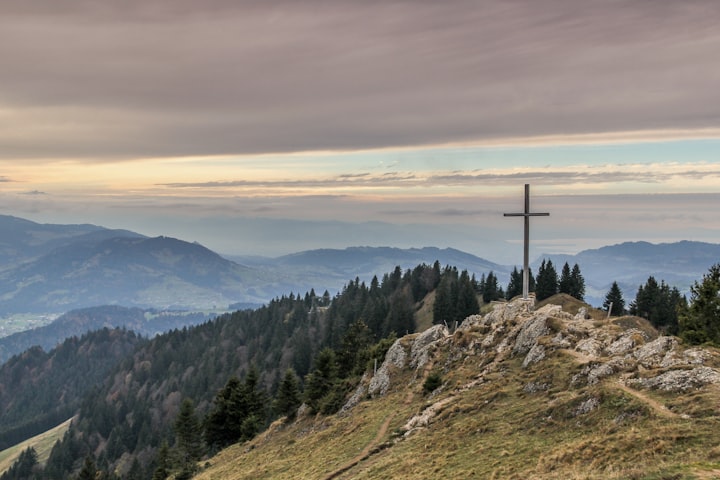America Needs to Keep Religion Out of Schools
Academic Success for all students

It’s the first day of new school year. Cindy excitedly leaps off the bus and practically runs to class. A feeling of eccentricity flows through her veins because she will be in a new class, new teacher, and make new friends. As the door to her classroom opens, she walks in and slowly takes in the image of her classroom. Her teacher is standing in the front of the room with a live chicken chained to a large table. What is going on? She wonders as she and her fellow peers take their seats and await the answer of this bizarre scene. Once the starting bell rings, the teacher stands in front of the class and begins chanting in a language that no one is able to comprehend. After a few minutes of chanting, the teacher clutches the knife and prepares to sacrifice the chicken in front of the students. They all gasp at the possible horror that might unfold before their very eyes. Before striking the chicken, the teacher pauses. “Welcome to the new school year. I am chanting for your success this year and I invite you all to join in my chant. Of course, if you don’t want to, you can just sit until I’m done.
What would an average Christian loving American parent think if they found out this was happening in their child’s school? Would the parent have concerns? Would the parent rush to pull out their phone and begin calling to school to complain? Moreover, would this be enough to bring to the attention of the superintendent? If the answer is yes, then you would be wrong, according to the Supreme Court of the United States (SCOTUS).
Last month, June 2022, SCOTUS overturn another ruling in favor of a football coach who was praying on the fiftieth yard line after each football game for a public high school. According to the highest court in the country, the coach was just expressing his religious freedom, and thus had every right to do so. The conservative judges overlooked the fact the coach had invited students and other members of the community to join in prayer. If SCOTUS is willing to overlook a man praying in front of students during a school function, then they should also ignore any other public school official expressing their religious freedom in school, even if the religion is not of a Christian denomination.
Does this ruling go against the constitution? There is an amendment that prohibits states from declaring ONE official religion, but it also allows for all Americans the right to express their personal belief. State employees (particularly public school employees) are usually encouraged not to express the religious beliefs in front of students in order to create an inclusive environment for all children. There are, of course exceptions, but these are still limited to just the individuals, the hijab and personal prayer at school. School officals are encouraged not to include students. With the overruling of the SCOTUS, this opens another door of confusion upon the American people. Why is one religion allow special privileges over others?
Christianity is the most popular religion in America. Many of the country’s laws have been based upon Christian values, but at the same time challenged. Walk into most hotels in America, you will most likely find a bible placed in a drawer in the room because it is assumed that most Americans believe in God, and only one God. Another example is prisoners provided access to the bible during their incarceration. The truth is, there are a vast variety of religious institutions in the country, fulfilling the ideology of America being a melting pot of cultures and beliefs. Allowing one religion to overshadow others could be more detrimental to the American society than strengthen it.
Religion in school is a prime example of how political agendas can create a harmful environment. If teachers are allow to express their beliefs in front of the students, then students who are not of the same faith may feel excluded from their classroom community. They could most likely be forced to learn in a religious hostile environment and bullied for following an opposing belief. Furthermore, in a scenario similar to the introduction, one religion will still be considered unacceptable and the teacher could end up losing their career, regardless of how effective they are. Public schools could continue to become exclusive to those who hold similar beliefs and ideology, creating another achievement gap based on religion.
Many people who argue for putting prayer back into public schools will claim that those who are from an alternative religion do not have to participate. Would the same be true if a Buddhist teacher decides to chant in the classroom for the students who are Buddhist? If we are going to ask non-Christian students to sit silently in a classroom while the majority bows their head in prayer, then the same courtesy should be available for those who follow a different faith. After all, it’s all about expressing one’s belief, our first amendment right. However, this would put the schools in a very difficult position to trying to accommodate every students’ belief. It would be easier for schools to continue to leave religion out of the classroom and focus on what is important instead: language arts, mathematics, and other content areas. One solutions is to teach about religion, rather than force one religion over the others.
Presently, most public schools stay focused on core subjects and continue to put the responsibility of teaching religion to those who would feel is best for their child: the parents. If parents want their child exposed to a certain religion, it should remain the parent’s responsibility and not the schools. Schools should continue to keep church and state in place regardless of SCOTUS’s decision. Christianity should remain a religious choice, not a religious oppressor. In the end, educators should always remember, not every student is a Christian. Acknowledge this fact and continue to create an inclusive environment for all students from any religious background so they can be academically successful.
About the Creator
Iris Harris
An aspiring novelist. I enjoy writing ghost, horror, and drama. Occassionally, I dabble with some essays. You can find more of my work with the link below:






Comments
There are no comments for this story
Be the first to respond and start the conversation.